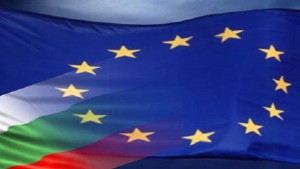Winter 2021 Economic Forecast: A challenging winter, but light at the end of the tunnel
The Winter 2021 Economic Forecast projects that the euro area economy will grow by 3.8% in both 2021 and 2022. The forecast projects that the EU economy will grow by 3.7% in 2021 and 3.9% in 2022.
BULGARIA
Economic activity in Bulgaria declined markedly in 2020 due to the COVID-19 pandemic. Private consumption dynamics followed the introduction and subsequent relaxation of containment measures. In late November 2020, a second wave of the pandemic led to the re-introduction of containment measures which are still in place and which continue to weigh on household consumption and business sentiment in trade and the services sector. Private investment remained depressed throughout the first nine months of 2020, while public sector investment increased markedly in 2020-Q3. Although exports within the EU have been recovering since mid-2020, sales to non-EU countries have continued to falter. The COVID-19 pandemic has led to a significant loss in revenues from foreign tourists, which typically account for around three quarters of revenues from tourist accommodation. Overall, real GDP is expected to have fallen by 4.9% in 2020.
Looking forward, domestic demand is forecast to remain subdued in the first half of 2021, given the assumed extension of containment measures. The eventual re-opening of the economy should provide a boost to consumption and investment in the second half of 2021. Goods exports are expected to gradually recover from the second quarter onwards, while foreign tourists are expected to start returning in the third quarter. The recovery in foreign tourism, however, is subject to a downside risk linked to the relative rates of vaccination and contagion in Bulgaria compared to alternative tourist destinations. Against this backdrop, real GDP growth is forecast to reach 2.7% in 2021, before accelerating to 4.9% in 2022 on the back of strong domestic demand and more buoyant exports. As the forecast does not take into account the implementation of the Recovery and Resilience Plan, an upside risk to public investment emerges.
Annual average inflation fell to 1.2% in 2020 due to falling energy prices and abating price dynamics in services and unprocessed foods. Inflation is set to increase to 1.7% in 2021 and 1.8% in 2022, driven by price increases in processed foods and services.





